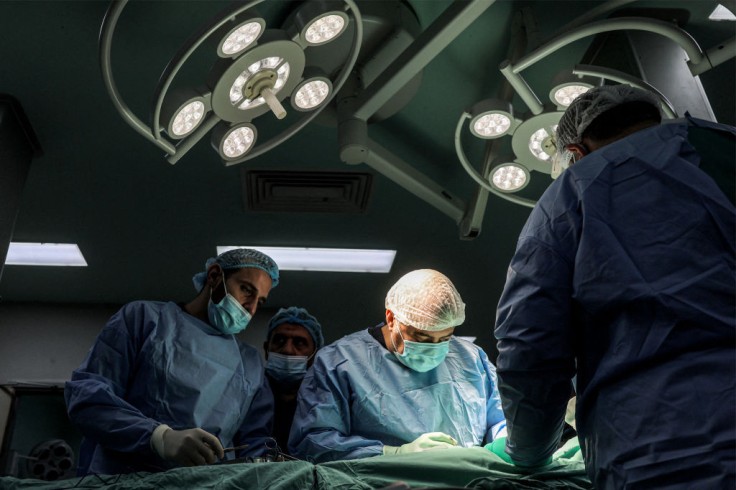
A surgical team led by Dr. Christoph Haller, a pediatric heart surgeon at The Hospital for Sick Children, prepares to conduct an experiment containing an anesthetized pregnant pig and proposes growing an artificial womb to help premature infants.
Artificial Womb May Help Save Human Premature Babies
Their goal is to create a womb-like surrounding to support the fetus's natural physiology, probably lessening dangers for premature babies. Despite its promise, the method raises ethical concerns, highlighted by Dr. Mark Mercurio. The team transfers a fetal piglet into the artificial womb, monitoring vital signs closely, with hopes of improving outcomes for premature infants.
Dr. Haller emphasizes the goal of saving lives while stressing the importance of regulation. The experiment represents a cautious step towards potentially revolutionizing care for premature babies.
A medical team bustles around an anesthetized pregnant sow on an operating table, gearing up for an experiment aimed at potentially revolutionizing care for premature babies.
"Our main objective today is to transfer a fetus into that artificial womb," Dr. Christoph Haller explains, pointing to a transparent rectangular plastic sack fitted with tubes. "We're moving it into an artificial environment that maintains the fetus's natural physiology."
Although today's trial involves a pig fetus, Haller and his team envision a future where such technology could assist human infants born extremely prematurely, reducing the risk of severe complications. This innovation aims to address the challenge of preserving premature fetuses to enable them to develop more naturally compared to standard preterm care.
NPR received exclusive access to observe Haller's team testing their artificial womb, sparking enthusiasm among doctors who manage premature births, a leading cause of infant mortality and disabilities. However, the concept of an artificial womb raises ethical queries.
Dr. Mark Mercurio, a pediatric professor at Yale School of Medicine, acknowledges the promising nature of the technology but underscores the need to address ethical concerns. The procedure remains highly experimental.
Read Also: Sydney Shopping Center Tragedy: 6 Victims Including Mother, Baby in Shocking Stabbing Rampage
Artificial Womb Innovation a Hope for the Future
The surgical setup includes a metal tray adorned with a drawn pig face and the words "Oink. Oink. Oink." surrounding it, symbolizing a light-hearted touch amidst the seriousness of the operation.
The team prepares the "biobag" and examines the sow's ten fetuses with an ultrasound. Dr. Haller improvises adjustments to tubing, displaying resourcefulness in ensuring functionality.
With precision, the team extracts a fetal piglet and swiftly evaluates its health before transferring it to the artificial womb. Carefully filling the biobag with a warm liquid to simulate amniotic fluid, they monitor vital signs closely, aiming for a smooth transition.
Dr. Haller anticipates observing signs of fetal well-being during the process, which may span hours. If successful, sustained support in such a device could significantly alter outcomes for very premature infants.
While the potential benefits are significant, questions arise regarding the ethical implications and practical considerations of implementing this technology for human use.
Discussions surrounding terminology, safety protocols, and societal impact underscore the complexity of introducing artificial womb technology. Despite the challenges, proponents emphasize the technology's potential to save lives and improve outcomes for vulnerable infants.
Regulatory frameworks and ethical guidelines must accompany scientific advancements to ensure responsible innovation.
As the fetal pig settles into its new environment, Dr. Haller expresses optimism about its comfort and well-being, underscoring the team's commitment to improving neonatal care.
Related Article: Full-Term Pregnancy: Exploring the Advantages When Feasible